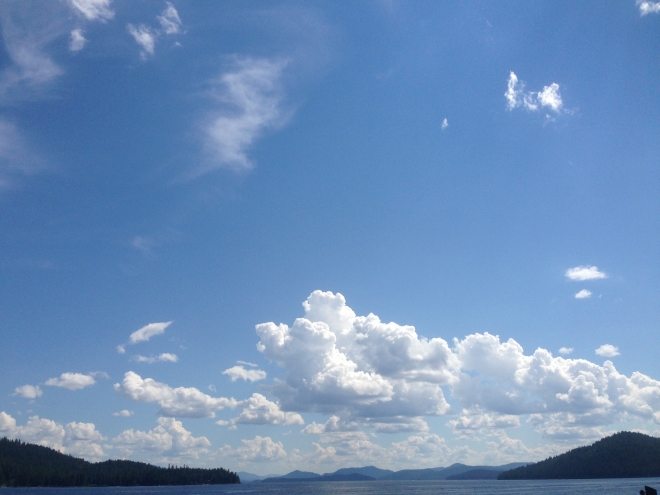
Existential Psychology
The Universalists
The Universalists were a fellowship made up of representatives from many different galaxies. They were committed to the purpose of promoting peace and well-being in the universe. As civilizations became more advanced, sending and receiving diplomatic convoys to and from galaxies across the stars, many sentient organisms began to realize that old allegiances towards clan, nation, planet, solar system, and even galaxy were absurdly limited in scope, lacking appreciation for the interdependence of all particles and ultimately the shared destiny of all life in the universe. The rallying cry of members from many of the most advanced civilizations became “Not a nationalist. Not a worldist. We are Universalists.” Soon the best and brightest from countless planets became part of a special task force charged with maintaining peace and fostering a sense of harmony and community among all sentient organisms.
The powers of many of these members were nothing short of extraordinary. They would have been considered gods by less advanced civilizations. Probably the most prominent figure had arrived out of thin air to volunteer his services at a meeting taking place at an important outpost in the Andromeda galaxy. He could shape shift. He could move around the universe at will, imagining himself in a specific location and instantly traveling there. He didn’t seem to require oxygen or anything else to survive. Actually no one knew the extent of his powers, and if they had known, a general sense of unease would have gripped them. He had destroyed planets. This had been thousands of years before. He had believed at the time that exterminating a species developing rapidly, whose primary goal was the domination and subjugation of other life forms, was justified. After long days of meditation he acted in the interest of protecting the universe. He would come to doubt and to regret this decision for the rest of his life. The memory of it was what had spurred him to join the Universalists, making a promise to himself that he would never again use his powers for destruction of any kind.
He had recently become interested in a race of sentient organisms who called themselves human beings. He had stumbled upon them rather by accident. He was traveling to a different planet but while absentmindedly considering a few responsibilities during his shift he landed on earth instead. Humans had escaped too much interest from other beings in the universe because they were not yet considered advanced enough to pose the threat of expanding the frontiers of their civilization beyond their home planet, and Universalists generally waited until this occurred before making first contact. But he was instantly shocked by their creativity. Although they were not far advanced relatively speaking, their technological progress over the last few hundred years dwarfed anything any other civilization he had encountered on his endless travels had accomplished in a similar time frame. If they kept up at this rate and managed not to destroy themselves in the process, he thought, they would be an imposing presence in the universe. And this scared him. He saw their propensity for creation, but also quickly noticed the ease many of them had with destruction, how they used up natural resources without the slightest concern about the repercussions, the endless cycle of their wars, and all the unnecessary suffering. He was reminded of another species he had exterminated long ago, and that old feeling of regret surged up inside of him. Humans were a strange mix. He saw their potential for greatness but also their potential for great evil.
That was when an idea hit him. “I can make them prisoners in their own galaxy without having to destroy them, limiting the damage they can cause. A ring around the Milky Way. Forever in its confines shall mankind stay.” He could act unilaterally. But in the next moment he discarded the plan. Questions of power, freedom, responsibility, and peace skirted across the edge of his conscious thought. A state of equilibrium caused by authoritarian control is not peace at all. It is subservience, subjugation, a wolf in sheep’s clothing. Without freedom there can be no responsibility for thinking and acting, and without the free, responsible decision to live a life of peace a state of non-war is meaningless, imposed from without. How could he, unbeknownst to humans, make a choice to limit freedom and responsibility while claiming to be a broker for peace? For better or worse he would let these beings decide their own destinies.
Besides, many of humanity’s most exemplary members had already come to conclusions in their short lives that had taken him thousands of years of agonizing thought to reach. They had a chance. The best and brightest of humanity had reached a state of enlightenment. As he buzzed across several galaxies, returning home, he felt the weight of his decision to stay out of the affairs of humans mixed with the weight of a few books he had brought back with him, including one by the Buddhist monk Thich Nhat Hanh. The beautiful simplicity of the prose resonated with him more deeply than more advanced material by evolved lifeforms in other parts of the universe ever had. The line that stuck out, grabbing and holding his interest without letting go, said “I do not believe that there is a way to peace. Peace is the way.” He hoped that one day soon representatives of humanity would reach out across the galaxies in a spirit of peace and community, that they would realize what so many other sentient organisms across the universe had already realized, that all organisms were connected in an intricate web. That the way of meaning was the way of peace, and that only a spirit of peace could save humanity from the grisly fate that probably awaited it. That their only chance for lasting meaning, their only chance to validate the existence of all the humans who had come before them, was to reach beyond themselves, adding to the river of the universe at large before they had used up all the resources on their home planet.
As he was pondering these thoughts an emergency message reached him from a few trusted Universalists. The universe was about to collide, for the first time in known history, with another universe. The multiverse was real. In that moment he realized that even the idea of ‘Universalist’ had been too narrow, too limited of a definition to describe the connectedness of all things. He knew some difficult questions were about to be raised. Should they protect the frontiers of their own universe against possible attack? Allow the two to collide with no intervention? Send an exploratory mission into the unknown? What if the species waiting there were warlike and technologically advanced? The same questions that had plagued human beings for millenia on an impossibly small scale were now occurring on the largest scale so far imaginable, and even that scale might be nothing more than a speck of dust, a grain of sand on the beach of existence.
Related posts:
- Existential Guilt Understanding existential guilt requires the recognition that human beings are at once creaturely and godlike, biological organisms tied to the physical world who are also capable of transcending the biological and physical through their creative acts. Other organisms on the planet don’t share this human dilemma. They do what their genes have programmed them to […]...
- Go Back To Nature “In every walk with nature one receives far more than he seeks.” – John Muir Many of us living in modern technological times feel alienated from the natural world, as if it had little or nothing at all to do with us, and in actual fact many of us live completely separate from nature except […]...
- Interbeing Definition The law of interbeing says that everything is connected to everything else. Consider the commercial airplane flying through the sky. This plane is made up of many non-plane elements. Some of them include the designers who planned it, the builders who built it, the gasoline that runs it, the materials used to construct it, the […]...
- Existential Anxiety Explained To be able to understand and appreciate the traits of an entity you need that entity to exist. You need it to be something. This is what makes existential anxiety difficult to conceptualize, it’s what makes it nebulous, hard to pin down, like a fleeting shadow only briefly perceived at the periphery before escaping awareness. Existential anxiety […]...
- Paradox Of Increasing Knowledge If the conscious endeavor to gain knowledge of is actually the unconscious endeavor to gain mastery over in order to mitigate the existential anxiety cued off by feeling tiny and helpless in a threatening world the paradox of increasing knowledge is that in spite of spectacular achievement the global psychological result has been feeling tinier […]...
- Garden We said that peace, rather than being a passive state, is the most active of states. But what does this really mean? When we think of peace we usually think of tranquility, quiet, gentle movements, and calm. On the surface peace seems to be a passive state. Consider a lush garden, filled with blooming flowers […]...
- Warriors For Peace People who haven’t done the very exhausting work of emotional and intellectual development tend to consider peace to be a passive state. Peace is not a passive state, it is the most active of states. Where the warlike attitude is lazy, allowing for the quick release of stored up psychic energy in the form of […]...
- Swimming Against the Current Have you ever heard the line of advice that tells you to go with the flow? It says that if you stop fighting the current things will get much easier for you. It might use the metaphor of a fish gently swimming downstream, moving without having to exert itself much and still getting where it […]...
- The Capacity To Be Bored Is A Blessing If humans were incapable of getting bored it would be a curse not a blessing since it would signify their fundamental inability to be aware of or engage in different levels of contact with people and the world. Only full and authentic contact can create mindful engagement with the gestalt in question so that all […]...
- Anxiety From Within or Without It makes a lot sense to discuss whether anxiety is something that comes from without, meaning from some source in the environment, or is generated from within. We will stay in an existential framework to try to answer this difficult questions. Humans have transcended nature but are still tied to it. Our bodies still grow […]...
- Putting Off Making An Important Decision If you’ve been putting off making an important decision the culprit is death anxiety. While death anxiety has its root in the threat of the obliteration of our biological organisms we humans experience death anxiety in its symbolic forms too, where it’s not anything technically ‘alive’ on the chopping block but the same existential dread […]...
- Doing Nothing is Doing Something A rationalization many of us use to let ourselves off the hook for making an important life decision is to tell ourselves that waiting to see how things pan out is the most prudent course of action. We feel a lot of discomfort from the anxiety that accompanies awareness of our inherent existential responsibility, and […]...
- Peaceful Warrior The underlying philosophy of yoga is one of peace and harmony which makes having poses called warriors seem like a contradiction. But the beauty of Eastern philosophy lies in its challenges to customary logic and its uncanny knack for helping you to arrive at the truth of a situation by experiencing it rather than intellectualizing […]...
- Creation and Destruction The school shooting tragedy in New Town left people grappling with difficult existential questions, like the nature of good and evil and whether life has any meaning. Sandy Hook Elementary could be any school in America. This realization creates painful feelings of uncertainty and dread. Anxiety skyrockets as we are forced to consider the whims […]...
- Wanting To Grow Versus Wanting To Go Back To The Womb A lot of mental health problems are caused by unconscious inner conflicts, simultaneous and competing drives and desires that pull people in two directions at once. The result is often the paralysis of action because any decision seems like the wrong decision. One of the major conflicts, fundamental to the human condition, is wanting to […]...
- Choosing The Person You Want To Be From the existential point of view what separates the human process of becoming from the process of becoming of all other organisms is that human beings have some say in the matter; they’re capable of directing their own growth and development, of responding to their given situations as they see fit, of deciding upon the […]...
- Interest In Life It takes many people a long time being depressed before they come to terms with it, admitting to themselves and others that they are indeed depressed and need help. We get good at masking and rationalizing symptoms when we don’t want to see them. In the very early stages, before these symptoms are basically hitting […]...
- Peace And Quiet To Reduce Stress Levels One of the best parts about spending time in nature is how quiet it is. The discrepancy between life in the city and life in nature is shockingly apparent. It’s jarring to realize that the sort of peace and quiet we value out there was the reality for our ancestors not just for a short […]...
- Couples, Adaptation, And Passion Probably the worst of the plagues that hits couples is taking each other for granted. A level of complacency sets in, the honeymoon period seems like lifetimes ago, having the other around is basically a baseline state of being, just how things are and not really worth remark. The next stop on this apathy train […]...
- Anxiety Can Be Paralyzing “Concern should drive us into action, not into a depression.” -Karen Horney When we think of anxiety from a physiological standpoint we think of the fight or flight response, where our bodies activate to either run away from a threat or face it to try to overcome it. But when we broaden our definition of […]...




